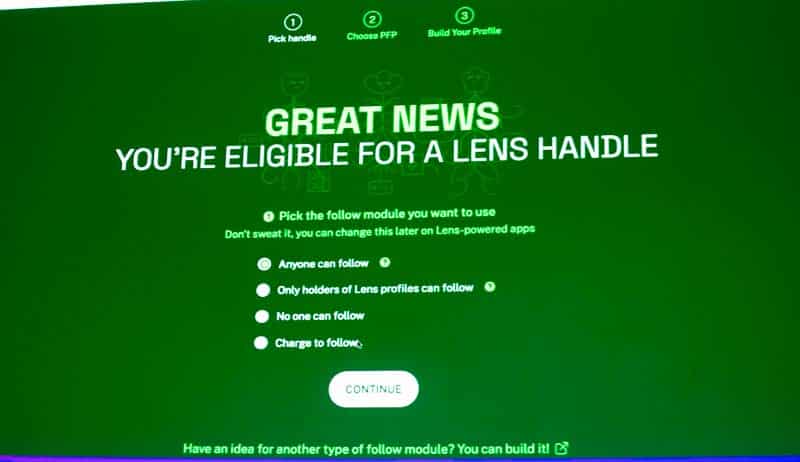
It felt a bit like history in the making as I sat in the front row of the Permissionless conference in West Palm Beach, Fla., Thursday as David Hoffman, co-host of the Bankless podcast, introduced Stani Kulechov via video conference. Kulechov used the crypto gathering to launch Lens, a protocol that powers social networks for Web3.
One of those dapps, Lenster, is the first true decentralized social network for Web3. (The nomenclature is a bit tricky. The Lens protocol already has launched more than 50 applications, including Lens Booster, SpamDAO, GoldenCircle, PeerStream, Swapify, Social Link and others.)
“We are no longer serfs on Mark Zuckerberg’s land,” Hoffman declared at one point. Well said.
It was noteworthy that Kulevhov got kicked off Twitter last month after he’d joked that he was taking over the platform, and Hoffman’s Bankless account was briefly suspended by YouTube before it was restored earlier this month. Users, not a centralized company, manage the content and personal data linked with accounts under this setup, making it far more censorship-resistant than social networks run by the tech giants.
While most of us routinely use Web2 platforms such as Facebook, Twitter, Instagram and TikTok, we don’t own the content we create or share there. Not so on Lens, where you’re in full control of your account and the content you produce.
To be clear, no one is suggesting that we ditch our Web2 accounts and move wholesale over to everything Web3. (Well, a few diehard crypto natives are suggesting that.) Rather, we use Web2 for reach to spread the word about Web3 platforms and NFT marketplaces. We use Web3 for ownership, trading and proof of provenance as many of us begin to move toward the metaverse and digital-first experiences.
Lens: Mint your own profile

Kulechov’s team at lending protocol Aave have been working on Lens for the past year. The folks behind the protocol describe it this way: “Lens Protocol is a composable and decentralized social graph, ready for you to build on so you can focus on creating a great experience, not scaling your users.” It’s built on the Polygon blockchain, which Kulechov called “super fast and super cheap.”
For those who want to join in the fun, head to lens.xyz and choose the Claim handle button at the top right. If you’re unlucky (like me) and connect your Metamask wallet, you’ll get an error message saying, “You are on the wrong network. Switch to Polygon mainnet.” Disappointing that the UX gives no clue how to do this. Tip: You have to add Polygon from a site like Chainlist. But you still have to be white-listed. I received this notice:
Only addresses affiliated with an open letter signature are eligible at this time. Wider access will be rolled out soon.
If you’re eligible, you’ll get to the next step of the registration process. You’ll upload your avatar and choose how you want others to follow you:
- Anyone can follow
- Only fholders of Lens profiles can follow
- No one can follow
- Charge to follow

Kulechov explained that some creatives or influencers may want to charge a fee, such as videographers or documentary makers who get their project funded and then share the proceeds from the project with their network.
Instead of being limited to a single algorithm from Twitter, Facebook or Instagram, for instance, by using Lens one could build or choose from a variety of algorithms that could be tailored to users’ specific needs or moods. A wide range of monetization models could be built on top of Lens, Kulechov added.
At its core, the open source protocol is an ecosystem that seeks to boost a permissionless, composable and decentralized social graph so that building a Web3 social platform become easy.
Those coming to Lens will recognize familiar social features like a profile picture, comments, reshares and the like. NFTs are a big differentiator (though Instagram just added support for NFTs). Out of the box, Lens integrates owners’ NFTs, enabling users to display their tokenized profile pictures and to share NFTs in their wallets on their pages.
“We believe that the ownership of content and profiles should belong to you in the way that DeFi belongs to you,” Kulechov told the crowd.
The Lens protocol launched with backing from Polygon Network and other Web3 service providers.






